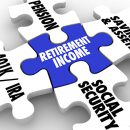Choosing the Best Retirement Accounts

“As in all successful ventures, the foundation of a good retirement is planning”, said radio speaker Earl Nightingale. Retirement is a critical point in the life of every working professional – emotionally as well as financially. The thought of leaving a workplace where somebody has worked for decades is overwhelming, and it is bound to make them emotional. At the same time, what bothers them is the thought of their post-retirement finances. Retirement entails the absence of employment and thus, a certain source of income. Hence, you must plan well-ahead in time to create your retirement corpus through retirement accounts.
Table of Contents
What is a Retirement Account?
A retirement account helps you save money for your post-retired life. Most of these accounts offer tax benefits. Thus, you can hit two birds with one stone – save for retirement as well as save taxes. The earlier you start saving for your retirement, the better it is for you.
10 types of Employer Sponsored Retirement Accounts
- Traditional IRA
- Health Savings Account
- Simplified Employee Pension
- Simple Individual Retirement Account
- Roth Individual Retirement Account
- Self Directed Individual Retirement Account
- Retirement Savings Plan sponsored by the employer or 401(k)
- Solo 401(k) Account
- Retirement plans for non-profit employees or 403(b)
- 457 Plans
Here are some of the retirement accounts that you can consider for building your retirement nest:
1. Traditional IRA
A traditional Individual Retirement Account (IRA) is a retirement account that offers tax advantages. For example, if you invest $5000 in such an account, then you can claim it as a deduction from your taxable income. However, if you decide to withdraw that invested money during retirement, then your withdrawals will be taxed at prevailing tax rates.
Anybody can open a traditional IRA; however, not everybody can claim tax deductions on the same. Moreover, there are limits on your contribution to such an account. If you are below the age of 50, you can contribute up to $6,000 annually, if you are 50 or older, you can contribute up to $7,000 annually (2020 limits).
Another provision related to traditional IRA is that once you reach the age of 70 ½ years, you must withdraw the Required Minimum Distribution (RMD) every year. The amount to be withdrawn is computed by taking into consideration the size of your account and your life expectancy.
2. Health Savings Account
Healthcare expenses are an indispensable part of one’s post-retirement life. Managing these without a regular source of income could be difficult. Hence, it is wise to invest in a Health Savings Account (HSA) and make provisions for your future medical expenses. If you are covered under High-Deductible Health Plans (HDHPs), you can contribute to HSAs for those medical expenses not covered by HDHPs.
In 2020, you can make an annual contribution of $3550 individually or $7100 for your family. If you are above the age of 55, you can save an additional $1000 in your account every year. Also, to make such contributions, you must be below the age of 65. Post 65 years, you can withdraw money from your HSA but cannot contribute to it. It is worthwhile to know that the withdrawals from this account should be used for medical purposes, otherwise, you will be liable to pay taxes on it along with an additional 20% penalty tax.
3. Simplified Employee Pension
If you are an employer or self-employed, you can build your retirement nest with the help of a Simplified Employee Pension (SEP) account. Your contributions to this account are eligible for a tax deduction. Such accounts have higher contribution limits than standard IRAs. In 2020, you can save up to 25% of your yearly earnings or $ 57,000 (whichever is less) in a SEP account.
4. Simple Individual Retirement Account
This retirement account plan enables small business owners to set up retirement accounts for their employees, provided they have 100 or fewer employees. If you are one of them, you must either match the contributions made by your employees to their plan (up to 3% of their salary) or make a flat contribution of 2% of their salary. Under this retirement plan, in 2020, employees can deposit up to $13,500 annually. Employees who are above the age of 50 can deposit an additional $3,000 each year.
5. Roth Individual Retirement Account
Roth IRA does not offer any tax benefits for the contributions you make. But whatever you earn on such an account grows tax-free. Once you reach the age of 59½, you can make tax-free withdrawals from your account. Furthermore, unlike traditional IRAs, there is no mandatory requirement for you to withdraw a yearly amount from your IRA after reaching the age of 70½ years. There are certain eligibility criterias associated with a Roth IRA. For example, if you wish to contribute to Roth IRA, you must have a yearly earning of less than $137,000 if you are single, and $203,000 if you are married and are filing jointly.
6.Self Directed Individual Retirement Account
A self directed IRA is the same as a traditional or a Roth IRA but holds different kinds of assets. A self directed IRA holds investments like mutual funds, stocks, bonds, real estate, precious metals, partnerships, etc. The contributions made towards a self directed IRA are not exempt from tax. However, the qualified distributions are. This means that your money grows tax-free over the years in this account.
7. Retirement Savings Plan sponsored by the employer or 401(k)
Under a 401(k), the contribution to the retirement account is sponsored by the employer. According to this retirement plan, you as an employee can invest a certain amount of your salary (before tax) in the 401(k) account. Such contributions are tax-free. However, withdrawals from this account attract tax. In 2020, you can contribute a maximum of $19,500 yearly, and $25,000 yearly if you are above the age of 50.
8. Solo 401(k) Account
A solo 401 (k) account is just like a traditional 401(k) account, but it is solely designed for business owners with no other full time employees. A solo 401(k) account allows you to contribute up to $57,000 in a financial year with an additional catch up limit of $6,500 for people above the age of 50. As far as the taxes are concerned, you can choose between the taxation rules of a traditional or a Roth 401(k) account. So, you can either pay taxes on your distributions like in the case of a traditional 401(k) account or enjoy tax free payouts in retirement like a Roth 401(k) account.
9. Retirement plans for non-profit employees or 403(b)
This retirement plan is also referred to as the tax-sheltered annuity plan. Unlike 401(k), it is meant for employees who work for non-profit organizations, public schools, organizations that are tax-free, etc. For example, you can save with the help of this retirement plan if you are a teacher, school authority, professor, someone who works in public libraries, etc. The other provisions of this retirement plan are quite similar to those of 401(k). You can invest a certain amount of your salary in a 403(b) plan; earnings will be taxed on withdrawal.
10. 457 Plans
457 plans function just like a 401(k) account. The only exception is that while 401(k) plans are meant for employees of the private sector, 457 plans are meant for employees working in the local or state government. Some non-profit organizations also qualify for these plans. A 457 plan is a tax advantaged account with an annual contribution limit of $19,500. There is also an additional catch up limit of $6,500 for employees over the age of 50.
Which retirement accounts are best for you?
Picking the right account will depend on your employer, income, future goals, and family needs. It is important to understand the stipulations of each account and see how it impacts your overall savings. Is paying tax now more beneficial to you or would you rather pay tax on your withdrawals? Moreover, the annual contribution limits should also align with your savings goals.
What retirement accounts are suitable for small-business owners and self-employed individuals?
The solo 401 (k) account can be a suitable choice for small-business owners provided they do have any full time employees working for them. If you have a few employees working for you, you can consider investing in a SEP IRA. The contributions limit for both the accounts is $57,000.
To sum it up
A job with a steady flow of income ensures a comfortable lifestyle with minimum financial concerns. Ideally, you would want this to continue even after you retire. Therefore, you must save for your retirement to ensure a financially secure post-retirement life.
Still can’t decide which retirement account to choose? You can approach capable financial advisors and seek guidance. With years of experience and expertise, they can help you save for your retirement with ease.

















